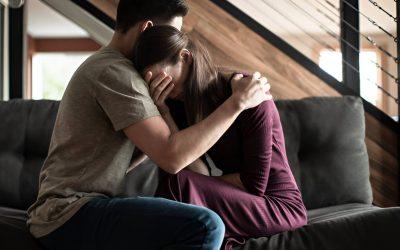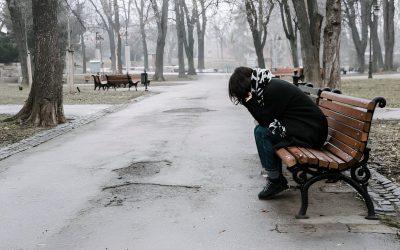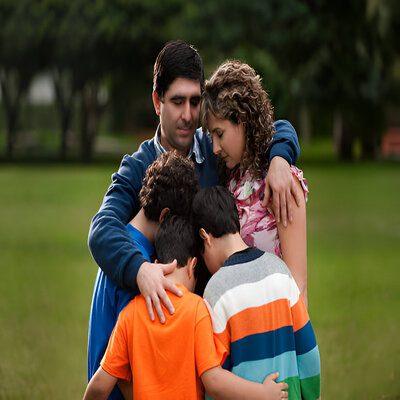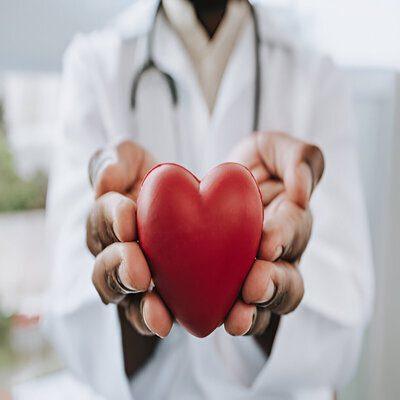A Different Kind of Goodbye
Heartbreak can feel as devastating as losing someone to death, yet often carries layers of doubt, hope, and unresolved emotions. As one woman shared, “I grieved the loss of us just as intensely as any funeral I’ve attended—because I was burying a future we once believed in.”
“When he left, it wasn’t just him I lost—it was the life we imagined together. Letting go of that dream was the hardest part.”
Where Loss and Love Collide
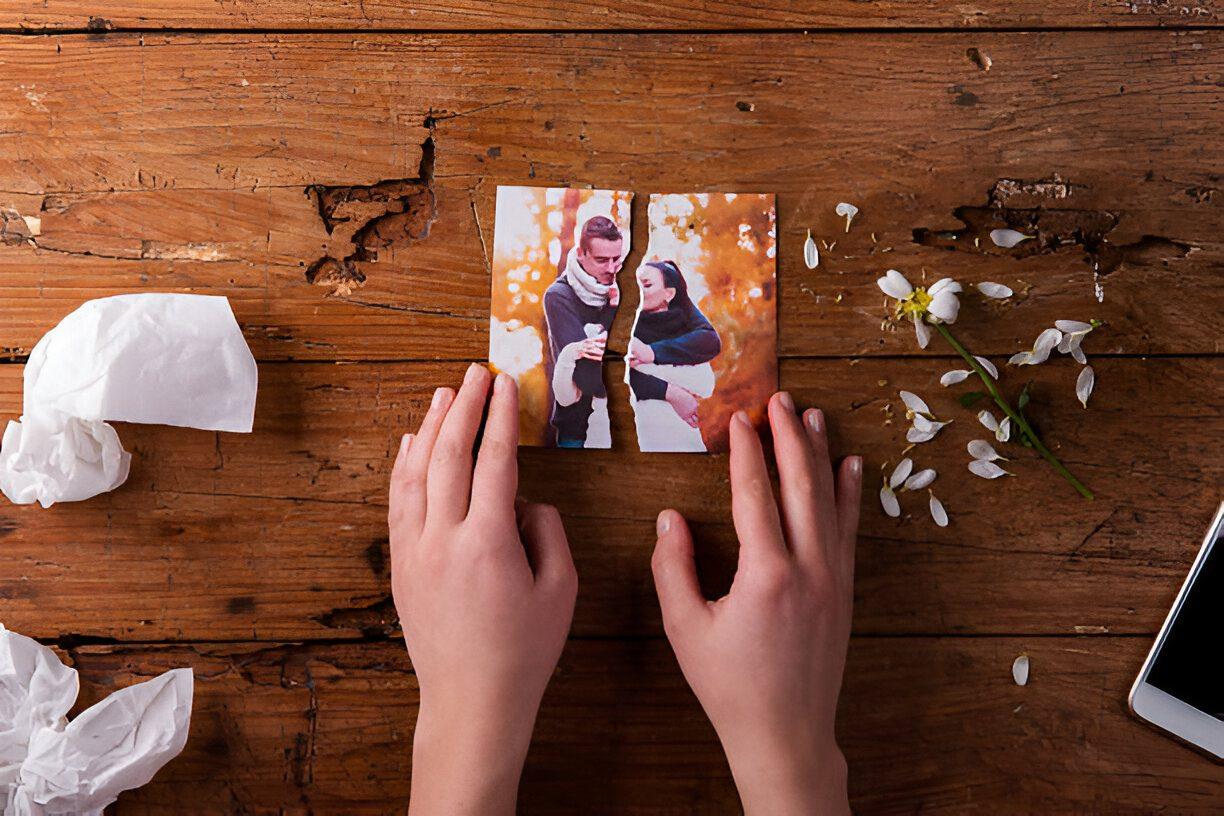
Grief Beyond Death: Heartbreak’s Impact
Grief doesn’t only arise from the loss of life—it emerges in the wake of love lost, dreams dismantled, and identities unraveled. Heartbreak, often misunderstood and dismissed, carries its own profound form of grief. This type of sorrow, tied to the end of a significant relationship, involves mourning not just a person but an entire imagined future, a shared history, and a part of oneself once deeply connected to another.
Here, we explore the layers of heartbreak grief and how to navigate this unique and challenging emotional landscape.
The Nature of Heartbreak Grief
Unlike grief from death, heartbreak often leaves lingering threads of hope, denial, or unanswered questions.
- Mourning the Future: The end of a relationship isn’t just about the loss of a partner but also the dreams and plans built together. It’s a loss of “what could have been.”
- Complex Finality: Breakups or unrequited love lack the definitive closure of death. This ambiguity can make acceptance harder, leaving unresolved feelings to fester.
“Sometimes we lose what we hoped for to discover who we’re meant to become.” — Brendan K.
Emotional Landscape
- Loss of SelfWhen a relationship ends, it often feels like a part of your identity is stripped away. The roles, routines, and shared identity as a couple vanish, leaving a void.
- Unresolved FeelingsThe lack of closure brings questions like “Why did this happen?” or “What could I have done differently?” These thoughts can replay endlessly, prolonging grief.
- Physical ManifestationsHeartbreak isn’t purely emotional—it impacts the body. Stress responses can lead to physical symptoms like chest pain, fatigue, loss of appetite, and insomnia.
- Emotional CyclesHeartbreak grief doesn’t follow a straight path. Waves of sadness, anger, nostalgia, and sometimes relief can come unpredictably, making it a complex journey.
Emotional Landscape
- Loss of Self
When a relationship ends, it often feels like a part of your identity is stripped away. The roles, routines, and shared identity as a couple vanish, leaving a void. - Unresolved Feelings
The lack of closure brings questions like “Why did this happen?” or “What could I have done differently?” These thoughts can replay endlessly, prolonging grief. - Physical Manifestations
Heartbreak isn’t purely emotional—it impacts the body. Stress responses can lead to physical symptoms like chest pain, fatigue, loss of appetite, and insomnia. - Emotional Cycles
Heartbreak grief doesn’t follow a straight path. Waves of sadness, anger, nostalgia, and sometimes relief can come unpredictably, making it a complex journey.
Psychological Impact
Self-Esteem
The rejection or dissolution of a relationship often triggers self-doubt. People may internalize the breakup as a failure, questioning their worth or choices.
Anxiety and Depression
The uncertainty of life post-relationship can spark anxiety, particularly about being alone or entering future relationships. Depression may deepen the sense of loss.
Trauma
For those emerging from abusive or toxic relationships, heartbreak grief can be compounded by trauma, leaving lasting emotional scars and symptoms similar to PTSD.
Social and Practical Repercussions
-
Social Isolation
Shared friends and social circles often shift, leaving one to navigate loneliness or even tension among mutual acquaintances. -
Life Disruptions
Breakups frequently involve logistical challenges, from finding new living arrangements to financial adjustments or custody negotiations. -
Cultural Stigma
Society sometimes stigmatizes divorce or long-term relationship failures, adding a layer of shame that complicates the grieving process.
Navigating Through Heartbreak Grief
Acknowledge the Grief
Validate your feelings. Grieving a lost relationship is legitimate and necessary for healing.
Express Emotions
Whether through journaling, art, or talking to a friend or therapist, find safe outlets to express your feelings rather than suppressing them.
Rebuild Meaning
Begin creating a life narrative that doesn’t revolve around the lost relationship. Explore new hobbies, strengthen friendships, or set personal goals to forge a renewed sense of purpose.
Practice Self-Care
Focus on physical health with regular exercise, nourishing meals, and adequate sleep. Small acts of care can provide a foundation for emotional recovery.
Seek Support
Connect with empathetic friends or join support groups. Therapy can provide tools to navigate heartbreak, especially if the loss feels overwhelming.
Letting Go
Letting go doesn’t mean forgetting—it means finding peace. Symbolic acts, like writing unsent letters or releasing mementos, can help release emotional ties.
Long-Term Healing
Transforming Love
Over time, the acute pain of heartbreak may soften into gratitude for the lessons learned. The love once shared doesn’t disappear but transforms into a part of your story.
Rebuilding Trust
Trust in yourself and others is gradually rebuilt as confidence and resilience grow. New relationships, when entered at the right time, can enrich life without replacing the past.
Embracing Change
Heartbreak often serves as a catalyst for personal growth. It’s an opportunity to redefine happiness, reconnect with your identity, and rediscover what brings you joy.
Things To Try This Week!
- Release Ritual: Write a letter to your former partner or to yourself, expressing regrets, memories, and hopes. Then tear it up or burn it safely, symbolizing the act of letting go.
- Reclaim a Hobby: Think of one activity or pastime you set aside during the relationship. Revisit it, allowing yourself to rediscover joy and independence.
- Social Check-In: Reach out to a supportive friend. Plan a short walk, coffee break, or phone call to remind yourself that connections still exist outside the lost relationship.
Conclusion
Heartbreak grief is a profound reminder of the risks we take in love and the depths of our emotional resilience. While the loss is painful, it offers an opportunity to learn, grow, and eventually find renewed joy.
The end of love doesn’t mean the end of connection or hope. Instead, it invites a transformation—an evolution of self and spirit that allows us to carry the love we’ve known into the lives we continue to build. In time, this grief becomes a testament to the strength of the human heart to heal, grow, and love again.
Even when heartbreak feels all-consuming, the compassion and insight you gain can lead to a stronger sense of self.
Visit our cherish section for comfort items, thoughtful ideas, and resources that guide you through rebuilding your life, one resilient step at a time.
Romantic Relationships: Embracing the Depth of Love
Romantic partnerships shape our hearts and futures, intertwining two lives into one shared path. Explore supportive resources and thoughtful keepsakes designed to honor, heal, and celebrate the profound connections we forge in love.
More Reflections, More Growth
Loss is complex, and the road to healing is different for everyone. These reflections offer insight, support, and guidance as you navigate this journey.
Healing After Heartbreak: Understanding the Link Between Grief and Heart Disease
Grief can have a significant impact on your heart health, leading to conditions like Broken Heart Syndrome. This article explains the link between emotional distress and heart disease and offers tips for protecting your heart while navigating the difficult journey of grief.
Becoming Whole Again: Rediscovering Yourself Post-Heartbreak
Heartbreak reshapes your identity and opens a door to profound self-discovery. This guide helps you embrace solitude, reconnect with your passions, and grow into a stronger, more authentic self.
From Heartache to Renewal: Healing After a Relationship Ends
Healing after a relationship ends is a journey of self-discovery and growth. This guide offers practical steps to process grief, rebuild confidence, and embrace a fulfilling new chapter.
Steady Hearts: Supporting a Partner Through Grief
Supporting a grieving partner requires empathy, patience, and care. This guide provides compassionate strategies for emotional and practical support while nurturing your relationship.
Relearning Life: Healing After Losing a Spouse
Healing after losing a spouse is a deeply personal journey. This guide offers compassionate strategies for navigating grief, honoring their memory, and rediscovering yourself.
When Love Ends in Grief: Navigating Heartbreak and Renewal
When love ends, grief reshapes life in profound ways. This guide explores compassionate strategies for navigating heartbreak, healing, and embracing new beginnings.
Romantic Relationships: Coping with the Loss of a Partner
Coping with the loss of a partner is deeply personal. This guide offers compassionate advice to honor their memory, navigate grief, and rebuild your life with resilience.
Grieving a Life Left Behind After Divorce
Divorce isn’t just the end of a relationship—it’s the loss of a shared future and a profound life shift. Learn how to grieve the life left behind and rebuild a hopeful new chapter.
The Emotional Toll of Separation
Separation is more than a life change—it’s an emotional journey filled with grief, self-discovery, and transformation. Learn strategies to navigate this difficult transition and build a hopeful new chapter.
Explore Journeys of Healing and Solace:
Discover dedicated spaces that offer understanding, guidance, and connection through grief. From the loss of loved ones to life’s challenging transitions, each category provides a pathway to reflect, connect, and find peace in shared experiences.








